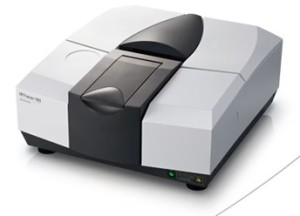
Applications and Uses of Shimadzu FT-NIR in Analytical Testing
Near Infrared (NIR) Spectroscopy has become an essential tool in the analytical sciences, particularly in industries that demand quick, non-destructive analysis of materials. Among the leading technologies in this field is Shimadzu’s Fourier Transform Near Infrared (FT-NIR) spectrometer, which provides high-precision and reliable results for a wide array of applications. The FT-NIR technique enables researchers and manufacturers to analyze samples without the need for sample preparation, a significant advantage over traditional methods that may require time-consuming and potentially destructive procedures. This article discusses the applications and use of the Shimadzu FT-NIR spectrometer in various industries, including food quality control, pharmaceuticals, and environmental monitoring.
Understanding FT-NIR Technology
FT-NIR spectroscopy operates by passing near-infrared light through a sample and measuring the absorbance at specific wavelengths. The light interacts with the chemical bonds in the sample, providing information on the molecular structure of the material. The Fourier transform technique is used to convert the raw data from the sample into a readable spectrum, which is then analyzed to determine the composition and characteristics of the sample.
Shimadzu’s FT-NIR systems are known for their superior precision, speed, and ease of use. They offer a variety of advantages, such as reduced sample preparation time, rapid analysis, and the ability to perform multi-component analysis. This makes the FT-NIR spectrometer ideal for real-time quality control and monitoring in industries where consistency and quality are paramount.
Applications of Shimadzu FT-NIR
1. Food Quality Control
In the food and beverage industry, the quality of raw materials and finished products must be monitored rigorously to ensure consumer safety and satisfaction. FT-NIR spectroscopy plays a crucial role in assessing various quality parameters such as moisture content, fat levels, protein content, and sugar concentration. Shimadzu FT-NIR spectrometers allow for real-time, non-destructive testing, meaning that producers can monitor the quality of ingredients and products without altering or damaging the samples.
For example, the moisture content in grains, flour, and other ingredients can be measured efficiently with FT-NIR technology. This helps food manufacturers maintain consistent product quality and optimize production processes. Additionally, FT-NIR spectrometers are used in evaluating the quality of beverages like coffee, tea, and wine, where parameters such as aroma, flavor compounds, and sugar content are critical for quality.
2. Pharmaceutical Industry
In the pharmaceutical industry, ensuring the purity and composition of drugs is a critical concern. Shimadzu FT-NIR is widely used for the analysis of raw materials, in-process samples, and finished products. The technology allows pharmaceutical companies to confirm the composition of active pharmaceutical ingredients (APIs) and excipients without the need for time-consuming and invasive procedures. Moreover, FT-NIR is often used for blending studies, where it helps to confirm that the ingredients are mixed uniformly.
The advantages of FT-NIR for the pharmaceutical industry include its ability to perform both qualitative and quantitative analyses of solid, liquid, and semi-solid samples. It is also utilized in the validation of processes, such as ensuring that a tablet or capsule contains the correct amount of active ingredients. Given the regulatory requirements for pharmaceutical manufacturing, FT-NIR offers a powerful tool for ensuring compliance with Good Manufacturing Practices (GMP).
3. Environmental Monitoring
FT-NIR spectroscopy has found its place in environmental monitoring, where it is used to assess various environmental parameters such as soil quality, water contamination, and atmospheric gases. In soil analysis, Shimadzu FT-NIR spectrometers are used to evaluate organic content, moisture, and nutrient levels. This is particularly important in agriculture and environmental conservation, where the health of the soil directly impacts crop yield and ecosystem sustainability.
In water testing, FT-NIR can quickly identify the presence of pollutants, such as nitrates and phosphates, which can have significant effects on water quality and aquatic life. The ability to conduct these tests rapidly and non-destructively is crucial for real-time monitoring of water bodies. Moreover, FT-NIR is used in monitoring air quality by identifying the concentration of gases like carbon dioxide, methane, and other pollutants that impact the environment and human health.
4. Chemical and Petrochemical Industry
The chemical and petrochemical industries rely on the accurate characterization of raw materials and end products to ensure the efficiency of their manufacturing processes. FT-NIR spectrometers provide a non-invasive means of analyzing chemical reactions, determining the composition of petrochemical products, and ensuring the quality of raw materials used in these industries.
For instance, in polymer manufacturing, FT-NIR is used to monitor the polymerization process, ensuring that the desired molecular weight and composition are achieved. It is also used in determining the concentration of various compounds in fuels, including gasoline and diesel, ensuring that they meet regulatory standards and performance expectations.
5. Agriculture and Crop Management
In agriculture, Shimadzu FT-NIR spectroscopy is employed for the analysis of plant materials, including seeds, crops, and soil samples. Farmers and agronomists use FT-NIR to assess the moisture content of seeds, enabling them to make informed decisions about harvest time and storage conditions. FT-NIR is also valuable for evaluating soil quality, helping to determine the levels of essential nutrients and organic matter that influence plant growth.
The technology allows for rapid, on-site analysis, reducing the need for laboratory testing and enabling quicker decision-making in the field. This contributes to more efficient farming practices, ensuring better crop yields and reducing the environmental impact of excessive fertilizer or pesticide use.
6. Quality Control in Manufacturing
In manufacturing industries that involve raw material processing, quality control is vital to ensuring consistent product quality. Shimadzu FT-NIR spectrometers can be used to monitor key components in materials such as metals, polymers, and composites. The ability to analyze these materials quickly and without destroying samples means that manufacturers can streamline their production processes, minimize waste, and enhance overall product quality.
FT-NIR is particularly useful in monitoring the consistency of production in batch processing industries, such as plastics and coatings, where minor variations in material composition can have significant effects on the final product’s performance.
